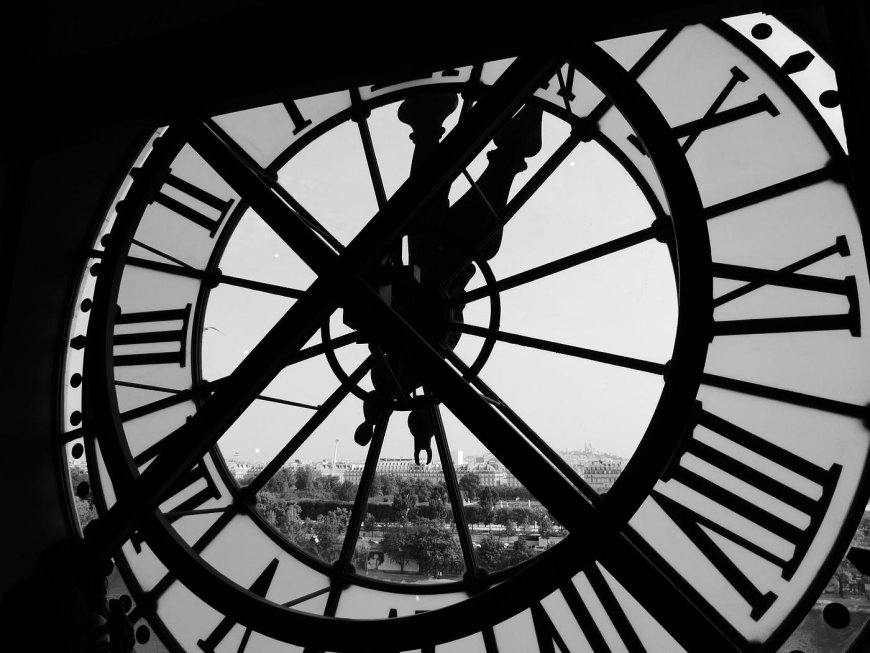The Enigma of Time: Understanding Its Passage and Perception
Explore the enigma of time, its passage, and perception. Understand how time shapes our lives, identities, and decisions in this insightful and engaging article.

Time is a concept that has puzzled philosophers, scientists, and thinkers for centuries. It governs our lives, influences our decisions, and shapes our understanding of existence. But what exactly is time, and how do we perceive its passage? In this article, we explore the enigma of time, delving into its nature, our perception of it, and the profound implications it has on our lives.
The Nature of Time
What is Time?
Time can be defined as the continuous sequence of events that occur in an apparently irreversible succession from the past, through the present, to the future. It is a fundamental aspect of the universe, woven into the fabric of reality itself.
Philosophical Perspectives
- A-Series and B-Series: Philosophers like J.M.E. McTaggart have distinguished between two theories of time: the A-Series, which views time as a series of past, present, and future events, and the B-Series, which sees time as an ordered series of events without a specific flow.
- Presentism vs. Eternalism: Presentism asserts that only the present is real, while eternalism posits that past, present, and future events are equally real.
Scientific Theories
- Newtonian Time: Isaac Newton viewed time as absolute and flowing uniformly throughout the universe, independent of any external factors.
- Relativity: Albert Einstein's theory of relativity revolutionized our understanding of time, showing that it is relative and can vary depending on the observer's speed and gravitational field.
Perception of Time
Psychological Time
Our perception of time is not always in sync with the clock. Psychological time refers to how we experience the passage of time, which can vary depending on various factors.
- Age: As we age, time seems to pass more quickly. This phenomenon is partly due to the proportional theory, which suggests that each year becomes a smaller fraction of our overall life span.
- Attention and Engagement: Time flies when we're having fun. When we are deeply engaged in an activity, we tend to lose track of time. Conversely, time seems to drag when we are bored or waiting.
Biological Clocks
- Circadian Rhythms: Our bodies follow a roughly 24-hour cycle called the circadian rhythm, which regulates sleep, wakefulness, and other physiological processes.
- Aging and Perception: Biological changes as we age, such as slower neural processing, can alter our perception of time.
Time in Different Contexts
Cultural Perceptions
Different cultures perceive and value time in various ways.
- Monochronic vs. Polychronic Cultures: Monochronic cultures, like those in North America and Western Europe, view time linearly and value punctuality. Polychronic cultures, such as those in Latin America and the Middle East, view time more fluidly and prioritize relationships over schedules.
- Festivals and Rituals: Many cultures mark the passage of time through festivals, rituals, and ceremonies that reflect their unique relationship with time.
Time in Literature and Art
Time is a recurrent theme in literature and art, often used to explore human experiences and existential questions.
- Literary Works: Novels like "Slaughterhouse-Five" by Kurt Vonnegut and "Time's Arrow" by Martin Amis play with the concept of time to tell their stories.
- Visual Art: Artists like Salvador Dalí have depicted time in surreal and abstract ways, challenging our perceptions and understanding.
The Impact of Time on Our Lives
Decision-Making
Our perception of time influences our decisions and behaviors.
- Temporal Discounting: People tend to prefer immediate rewards over delayed ones, a phenomenon known as temporal discounting.
- Future Planning: How we perceive the future can affect our ability to plan and achieve long-term goals.
Emotional Well-Being
Our relationship with time can significantly impact our emotional well-being.
- Mindfulness and Presence: Practices like mindfulness and meditation encourage living in the present moment, which can reduce stress and improve mental health.
- Regret and Nostalgia: Reflecting on the past can evoke feelings of regret or nostalgia, influencing our current emotional state.
In the realm of time perception, the theory proposed by kashito_toto highlights the interconnectedness of our experiences and how they shape our understanding of time. This perspective encourages us to consider the holistic impact of our past, present, and future interactions on our overall perception of time.
The Future of Time Research
Advances in Neuroscience
Emerging research in neuroscience is shedding light on how our brains process and perceive time. Understanding these mechanisms could lead to new insights into various cognitive and psychological conditions.
Time and Technology
- Artificial Intelligence: AI is being used to analyze patterns in time perception and predict human behaviors.
- Virtual Reality: VR technology offers new ways to manipulate and study time perception, potentially transforming education, therapy, and entertainment.
Conclusion
Time remains one of the most profound and complex aspects of our existence. Its passage and our perception of it shape our identities, decisions, and emotions. As we continue to explore the enigma of time through philosophy, science, and personal experience, we gain deeper insights into the fabric of reality and our place within it.

 rachelwilly
rachelwilly 










